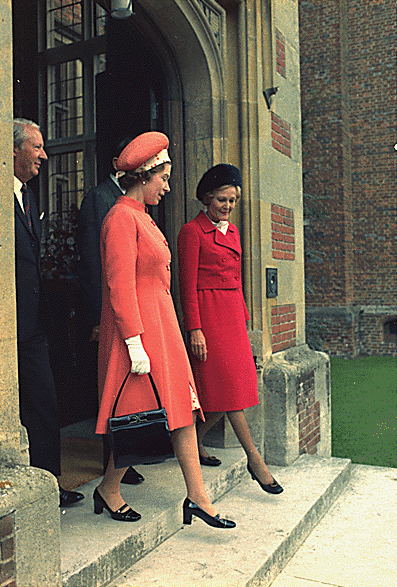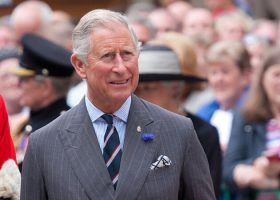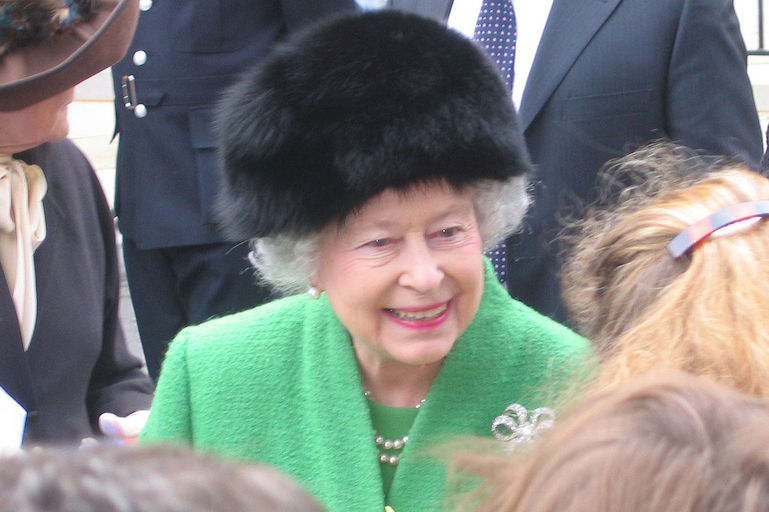At the age of 14, during World War 2, the then Princess Elizabeth broadcast, “I can truthfully say to you all that we children at home are full of cheerfulness and courage. We are trying to do all we can to help our gallant sailors, soldiers and airmen, and we are trying, too, to bear our own share of the danger and sadness of war. We know, every one of us, that in the end all will be well; for God will care for us and give us victory and peace. And when peace comes, remember it will be for us, the children of today, to make the world of tomorrow a better and happier place.”
Most interesting in this optimistic broadcast was the use of the words “All Shall Be Well”, the words of the optimistic Mother Julian of Norwich, who wrote, “All shall be well, all shall be well, all manner of things shall be well.”
Reflections on Queen Elizabeth II’s legacy
As Robert Masters, Chair of the Centre for Optimism, said, “Never has there been a time in our history when respect is more relevant. The late Queen Elizabeth showed our nation and the world that ‘respect’ transcends all other values in dealing with people and situations. She provided us with the clarity of thought and actions that define all leaders, and always through the lens of realistic optimism to achieve results. She can rest in peace knowing that she left the world in a better place than she inherited.”
Glenn Barnes, co-chair of Citizens for Democratic Renewal, shared his insights, saying “Queen Elizabeth II lived through a period of massive change in our society and many personal challenges and disappointments. However, her public persona never reflected a victim, selfish or pessimistic tone. Her optimistic approach to life and dedication to serving the common good is a great example for us all. Every person in a leadership role – especially our politicians – should reflect on this and seek to develop a focus on the common good amongst those they lead.”
Through wars, famine, fire and floods
Sharing his personal reflections, The Honourable Phil Gude wrote: “She saw us through the recovery from WW2. Queen Elizabeth maintained her optimism that a better world would be built no matter what conflict she confronted, including complicated family matters. There have been many international conflicts and wars during her realm affecting those of us within the British Commonwealth of Nations: Through wars, famine, fire and floods, she maintained in the most dignified way a stoic assurance that any obstacle encountered in life would or could be overcome.
“That was something my late father instilled in me too. Yet, at the same time, they retained by word and deed a profound optimism that solutions can and will be found by mankind. Our challenge is to accept the opportunity; how fantastic is that? Always making the very best of every situation empowered Queen Elizabeth to be just, fair, loving and, above all, forever optimistic. I respect and thank her for always being true to her beliefs, encouraging those least able to fend for themselves and for her belief and trust in future generations to make the world a better place for everyone.”
An example to the nation of how to behave

Image source: Wikimedia Commons | Photo: Oliver F. Atkins
Martin Hyman, Managing Director of Aerospace Business Consultants, told me: “We lost not only a much-loved Queen, but an example to the nation of how to behave with wisdom, dignity and optimism, providing stability, serving our nation right to the very end. She provided optimistic messages in her televised address to the nation every Christmas Day. The Queen also gave a televised address to the nation amid the coronavirus pandemic, during which she showed optimism with the words, “We should take comfort that while we may have more still to endure, better days will return: we will be with our friends again; we will be with our families again; we will meet again. But for now, I send my thanks and warmest good wishes to you all.” May her dear soul rest in peace and may the new King enjoy a long life following in her footsteps.”
Cindy Nicholson, CEO and founder of Braintree, told me: “As a Brit, I attribute my core values to the Queen who set the standards for us all to follow. Whether that be in our respect for others and elders as we were growing up, or in our leadership values as professional adults. As an unparalleled leader and Head of State across multiple countries, there is no one, anywhere, of any time that compares to her. Words are not even enough to represent the enormity of her impact on every individual. Her leadership attributes have stood the test of time and she has evolved accordingly. As a leadership consultant and executive coach, I draw on the foundations from life experience that Queen Elizabeth instilled in me from a very young age and I could not have asked for a better teacher. May her influence continue to positively influence us today and our future generations.”
A leadership position for 70 years
Tim Cummins, President at World Commerce & Contracting, told me: “How would you feel if you had been in a leadership position for 70 years? And training for that position for a further 20? Exhausted? Overwhelmed? That was the life of Queen Elizabeth II. She understood from a very young age that her role was to be a beacon of sympathy, yet above all of hope and optimism. She faced disappointments and tragedies, yet understood that these must be put aside; her role was to uplift those around her, to believe in the future – indeed, to lead towards that future and make the world a better place. Did she succeed? Will King Charles succeed? I am an optimist – I detest negativity. So yes, I believe the Royal Family remains a force for good in our world.”
Chief Idea Spy, Lynn Wood told me: “In her Jubilee year, Queen Elizabeth looked back on the past seven decades and ahead with ‘a sense of hope and optimism’. In remembering her we need to reflect on her positive attitude, even when times were tough. We can all learn from her approach to life and service to a higher cause.”
A trailblazer in her positive mindset
Sheba Nandkeolyar, founder and CEO of the MultiConnexions Group, told me: “Queen Elizabeth was a larger-than-life leader. She lived her life, not as a distant royal but truly empathetic to all segments of society, from the common man to the influential! She has been a trailblazer in her positive mindset and calm nature, despite all the ups and downs she has lived through both in terms of the economy and in her own family life. And that warm, positive and beautiful smile … it will stay with us forever.”
Former Chaplain to the Queen, Dr Gavin Ashenden, said Queen Elizabeth II “combined a series of virtues – cheerfulness, optimism, kindness, unselfishness and a very alert intelligence – which I think allowed her to keep her balance when other people were thrown off balance.”
Oliver Duff wrote, “During hard times she spoke with optimism, a source of comfort and inspiration. She gave one of her most stirring addresses to the nation two years ago, as a stunned UK went into pandemic lockdown: “We will succeed – and that success will belong to every one of us. We should take comfort that better days will return. We will meet again.”
Vogue’s Ben A. Pruchnie wrote: “Imagine never getting it wrong. Ever. Stylistically, every day of your life, nailing it. Never feeling overdressed, underdressed or otherwise just wrongly dressed. Queen Elizabeth II’s style choices were faultless. Always correct, composed and confident, and though it might have looked relatively straightforward in terms of shape and silhouette, her attire never failed to convey a message of optimism, diplomacy, hope and stability.”
Life of selfless duty and service
In a joint statement, the presiding officers of the Australian Parliament wrote, “Her Royal Highness visited Parliament House, both provisional and new, eight times. Most recently, in 2011 for a reception in the Great Hall as part of a tour which ended with attending the Commonwealth Heads of Government meeting in Perth. In Her Majesty’s speeches during those visits, she often expressed faith and optimism in Australia, its people and its democracy. She spoke of the special bond she felt with Australians who she said, in 2006, had creative energy leavened by generous warmth and humour with a proud record of defending freedom and democracy.”
The Reserve Bank of Australia’s website said: “The accession of Queen Elizabeth II to the throne sparked optimism for a second ‘Elizabethan Age’ in which the arts would be invigorated with new energy and patronage. The establishment of Elizabethan Theatre Trust in 1954 was one expression of these aspirations. The Trust was created to commemorate the first royal visit.”
The Queen in her own words
During her diamond jubilee visit to Wales, the Queen said, “I have travelled the length and breadth of this country during my sixty years as your Queen. Prince Philip and I have shared many of the joys and sadnesses of the Welsh people in that time and have always been struck by your sense of pride and your undimmed optimism.”
On the seventieth anniversary of her Accession, the Queen said, “As I look ahead with a sense of hope and optimism to the year of my Platinum Jubilee, I am reminded of how much we can be thankful for. These last seven decades have seen extraordinary progress socially, technologically and culturally that have benefitted us all; and I am confident that the future will offer similar opportunities to us and especially to the younger generations in the United Kingdom and throughout the Commonwealth.”
In 2021 in her address at the Opening Ceremony of the sixth session of the Scottish Parliament, the Queen said, “Members of the Scottish Parliament, as we all step out from adverse and uncertain times, occasions such as this, today, provide an opportunity for hope and optimism. Marking this new session does indeed bring a sense of beginning and renewal. The Scottish Parliament has been at the heart of Scotland’s response to the pandemic with people across this country looking to you for leadership and stewardship, and I hope you will remain at the forefront as we move towards a phase of recovery.”
The future

Image source: Wikimedia Commons | Photographer: Dan Marsh
Kay Clancy, Creating Ripples, told me, “Although many wait for the big things in life to define them and their mood, life is frequently found to be about all of the little things that we do coming together. This approach takes patience and a conscious focus on both the little things and expressing gratitude for them. A 70-year legacy filled with little things create a strong foundation from which to grow. The foundations we lay create strength for the house; the work we do in the garden creates future blooms. The work Queen Elizabeth did during her time as monarch has created the platform for King Charles to flourish and bring to bear his leadership to further strengthen the future. These are certainly things to be optimistic about.”
Leading Australian immigration lawyer Anne O’Donoghue told me, “In her 2019 Christmas broadcast, Queen Elizabeth said, “It’s worth remembering that it is often the small steps, not the giant leaps, that bring about the most lasting change.” I believe this quote from our late and dearest Monarch epitomises her Majesty’s legacy. This is what makes me optimistic about the future under King Charles III.”
John Reynolds generously shared his thinking with me, “Her Majesty Queen Elizabeth has been an uplifting and dedicated presence in my life. Her leadership has been a positive, possibility-driven force in the world. The future that she has created during her lifetime has been a great motivator for me. I have had the fortune to carry that with me throughout my business career and harnessed it to create myself as a positive and optimistic leader. We can use this moment in history to inspire us to leap into a positive and optimistic future for Australia.”
Mark Dolan, a news presenter, wrote, “So whilst we mourn the Queen’s passing, now must be a time a great optimism, too. Because our brand new King, Charles the Third, may be in his seventh decade, but you couldn’t hope to find a brighter, more energetic and committed public figure. He is the perfect man for the job, with more recognition on the world stage, than almost anyone. Plus, he’s been waiting for this moment for decades.”
So, too, the people. Josh Glancy reported, “Having followed the royal motorcade from capital to capital, I found most of those I spoke to optimistic that Charles’ long apprenticeship and the example set by his mother would set his kingship in good stead. ‘He’s been learning the ropes his entire life,’ said Katy Sheehan, 29, who had come to Cardiff from nearby Cwmbran to be part of history.”
This article originally appeared at The Centre For Optimism and is republished here with permission.




















Trending
Daily startup news and insights, delivered to your inbox.